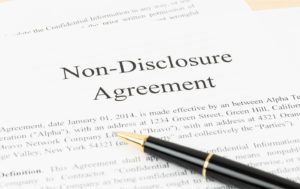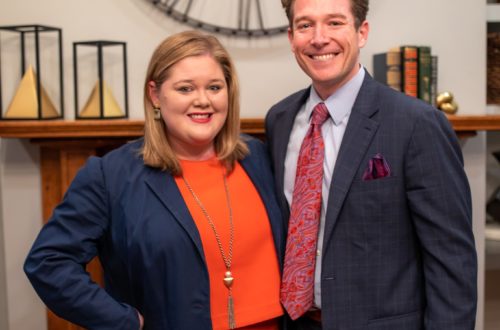
Lately the term “non-disclosure agreements” (or “NDAs”) have inundated the news. These secretive agreements are now forefront in headlines about Stormy Daniels’ alleged affair with President Trump and Uber’s evolving corporate culture in response to claims of sexual harassment and discrimination. This has left many non-lawyers wondering: why do parties enter non-disclosure agreements and how do these agreements work?
NDAs are contractual agreements designed to keep specified information confidential. Such agreements list and/or describe the information prohibited from disclosure and the punishment for disclosing such information, often, a large sum of money known as liquidated damages. Generally, parties are free to enter a non-disclosure agreement regarding any information, except that which may relate to criminal activity. This freedom allows both individuals and corporations to use non-disclosure agreements as a tool to conceal a variety of information they would like to keep out of the public eye.
Using the Stormy Daniels situation as an example, when the adult film actress recently announced her affair with President Donald Trump (which allegedly occurred in 2006), the President’s attorney, Michael Cohen, filed a lawsuit against her. The lawsuit alleged Ms. Daniels breached a non-disclosure agreement she apparently entered with President Trump. The alleged validity of the NDA is currently being litigated. Nevertheless, its alleged terms can provide us with insight regarding how NDAs operate. It is presumed Ms. Daniels agreed not to disclose any information regarding her alleged affair with the President in exchange for $130,000. However, if Ms. Daniels failed to keep this information confidential, she apparently agreed to pay $1,000,000 as liquidated damages for each breach of the agreement.
Corporations also frequently use NDAs to protect their brand and avoid public scrutiny. Prior to May 2018, Uber, like many corporations, included NDAs in settlement agreements it used to resolve lawsuits with customers and employees. These NDAs prevented the public from learning about the allegations leveled against Uber in such lawsuits. However, in a rare case of voluntary corporate disclosure, Uber recently changed this policy. Now, Uber will not require NDAs in future settlement agreements regarding claims of sexual harassment and/or discrimination. Uber hopes this policy change will help victims of sexual harassment and discrimination by encouraging victims to speak up when incidents occur and providing clarity on the company’s practices regarding these issues.
Although non-disclosure agreements may appear to be an intimidation tool, they are important contractual devices that can protect a wide variety of client interests. If someone asks you to enter into a non-disclosure agreement, be sure to familiarize yourself with the provisions regarding confidentiality and the potential damages for breaching such provisions.
If you have questions regarding a non-disclosure agreement or other contractual issues, please give us a call at (704) 457-1010 to schedule a consultation. For more information regarding our firm, attorneys, and practice areas, please visit https://lindleylawoffice.com/


